Fleurs du Mal Magazine


Or see the index
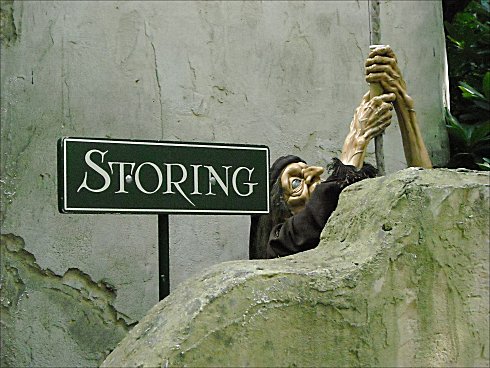
Street poetry: Storing
Photo jef van kempen, Kaatsheuvel 2010
fleursdumal.nl magazine
More in: Jef van Kempen, Jef van Kempen Photos & Drawings, Street Art
.jpg)
William Shakespeare
(1564-1616)
THE SONNETS
59
If there be nothing new, but that which is,
Hath been before, how are our brains beguiled,
Which labouring for invention bear amis
The second burthen of a former child!
O that record could with a backward look,
Even of five hundred courses of the sun,
Show me your image in some antique book,
Since mind at first in character was done.
That I might see what the old world could say,
To this composed wonder of your frame,
Whether we are mended, or whether better they,
Or whether revolution be the same.
O sure I am the wits of former days,
To subjects worse have given admiring praise.
![]()
kempis.nl poetry magazine
More in: -Shakespeare Sonnets
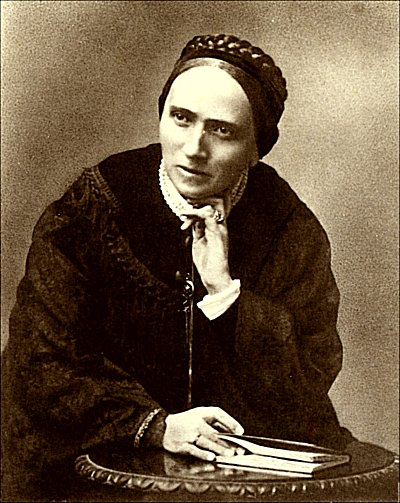
Luise Büchner
(1821–1877)
Dichtersegen
Nichts rührt die Seele an so göttlich schön,
Als sich in einem Andern selbst zu fühlen,
Gedanken, die gestaltlos in uns wühlen,
In edler Form verkörpert vor uns seh’n.
Den Dichter hat dein Auge nie erblickt,
Und plötzlich steht, ein Freund, er dir zur Seite,
Und manchem Zweifel, manchem stillen Leide
Hat deinen Geist auf einmal er entrückt.
Du irrest nicht – denn sieh! so denkt er auch,
Dein Herz spricht wahr – im Seinen ist erklungen
Derselbe Ruf, der dich so tief durchdrungen,
Und deine Thräne füllte einst sein Aug’!
Er hat gekämpft wie du – und vor dir her
Fliegt hoch sein Geist, das Rechte dir zu zeigen,
Wie stiller Segen will sich’s auf dich neigen
Und aufwärts stiegst du eine Stufe mehr!
Luise Büchner poetry
kempis.nl poetry magazine
More in: Archive A-B
.jpg)
Charles Dickens
(1812-1870)
Little Nell’s Funeral
And now the bell, — the bell
She had so often heard by night and day
And listened to with solemn pleasure,
E’en as a living voice, —
Rung its remorseless toll for her,
So young, so beautiful, so good.
Decrepit age, and vigorous life,
And blooming youth, and helpless infancy,
Poured forth, — on crutches, in the pride of strength
And health, in the full blush
Of promise, the mere dawn of life, —
To gather round her tomb. Old men were there,
Whose eyes were dim
And senses failing, —
Grandames, who might have died ten years ago,
And still been old, — the deaf, the blind, the lame,
The palsied,
The living dead in many shapes and forms,
To see the closing of this early grave.
What was the death it would shut in,
To that which still could crawl and keep above it!
Along the crowded path they bore her now;
Pure as the new fallen snow
That covered it; whose day on earth
Had been as fleeting.
Under that porch, where she had sat when Heaven
In mercy brought her to that peaceful spot,
She passed again, and the old church
Received her in its quiet shade.
They carried her to one old nook,
Where she had many and many a time sat musing,
And laid their burden softly on the pavement.
The light streamed on it through
The colored window, — a window where the boughs
Of trees were ever rustling
In the summer, and where the birds
Sang sweetly all day long.
.jpg)
Charles Dickens poetry
kempis.nl poetry magazine
More in: Charles Dickens, Dickens, Charles
.jpg)
E u g e n e M a r a i s
(1871-1936)
D i e s t i l l e r u s p l a a s
Drie verse uit “Die Tuin van Proserpina”
Die Juigende, die Sterke –
Die dood sal hom ook raak;
Nooit sal hy vlieg met vlerke
Of pyn in vure smaak.
Die Skoonheid van die rose,
Die kom en gaan van blose
Stoor nooit die Liefdelose –
Waar liefde ons versaak.
Bevryd van dors na lewe,
Van al ons hoop en wee,
Dank ons – bo alle vrees verhewe –
Die gode wat dit gee:
Hier eindig al ons drome,
Hier rus die lewenslome,
Hier vloei die moegste strome
Uiteindelik in die see.
Nòg gloeiend’ son, nòg duister,
Nòg keer van aand en dag,
Nòg waters sag gefluister
Sal ooit die slaap verkrag.
En soeter, sagter, vromer,
Vergeefs kom weer die Somer,
Want droomloos is die Dromer,
Verdiep in ewig’ nag.
Eugene Marais Gedigte
fleursdumal.nl magazine
More in: Archive M-N, Eugène Marais, Marais, Eugène
.jpg)
Ton van Reen
BENZINE
Een lucht van benzine hangt over het dorp
de dreiging zit dik in de kelen van de mensen
zomaar een enkele vonk van haat
kan een ontploffing veroorzaken
en het vuur over de daken laten dansen
Oproer stinkt altijd naar benzine
die ontploft, door klappende handen
of door de kreet van een kind
In de haard van de angst
ruikt het altijd naar benzine
die als een giftige slang over straat vloeit
wachtend op die ene vonk van haat
die de vlammen als een leger ratten
over de daken van het dorp laat rennen
Geweld ruikt altijd naar benzine
Ton van Reen: De naam van het mes. Afrikaanse gedichten
kempis.nl poetry magazine
More in: -De naam van het mes, Reen, Ton van
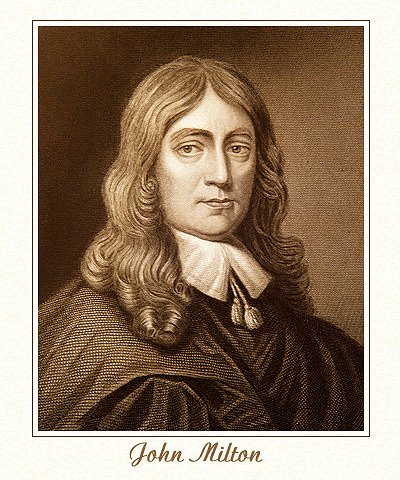
John Milton
(1608–1674)
Light
Hail holy light, ofspring of Heav’n first-born,
Or of th’ Eternal Coeternal beam
May I express thee unblam’d? since God is light,
And never but in unapproached light
Dwelt from Eternitie, dwelt then in thee,
Bright effluence of bright essence increate.
Or hear’st thou rather pure Ethereal stream,
Whose Fountain who shall tell? before the Sun,
Before the Heavens thou wert, and at the voice
Of God, as with a Mantle didst invest
The rising world of waters dark and deep,
Won from the void and formless infinite.
Thee I re-visit now with bolder wing,
Escap’t the Stygian Pool, though long detain’d
In that obscure sojourn, while in my flight
Through utter and through middle darkness borne
With other notes then to th’ Orphean Lyre
I sung of Chaos and Eternal Night,
Taught by the heav’nly Muse to venture down
The dark descent, and up to reascend,
Though hard and rare: thee I revisit safe,
And feel thy sovran vital Lamp; but thou
Revisit’st not these eyes, that rowle in vain
To find thy piercing ray, and find no dawn;
So thick a drop serene hath quencht thir Orbs,
Or dim suffusion veild. Yet not the more
Cease I to wander where the Muses haunt
Cleer Spring, or shadie Grove, or Sunnie Hill,
Smit with the love of sacred song; but chief
Thee Sion and the flowrie Brooks beneath
That wash thy hallowd feet, and warbling flow,
Nightly I visit: nor somtimes forget
Those other two equal’d with me in Fate,
So were I equal’d with them in renown.
Blind Thamyris and blind Maeonides,
And Tiresias and Phineus Prophets old.
Then feed on thoughts, that voluntarie move
Harmonious numbers; as the wakeful Bird
Sings darkling, and in shadiest Covert hid
Tunes her nocturnal Note. Thus with the Year
Seasons return, but not to me returns
Day, or the sweet approach of Ev’n or Morn,
Or sight of vernal bloom, or Summers Rose,
Or flocks, or herds, or human face divine;
But cloud in stead, and ever-during dark
Surrounds me, from the chearful waies of men
Cut off, and for the Book of knowledg fair
Presented with a Universal blanc
Of Natures works to mee expung’d and ras’d,
And wisdome at one entrance quite shut out.
So much the rather thou Celestial light
Shine inward, and the mind through all her powers
Irradiate, there plant eyes, all mist from thence
Purge and disperse, that I may see and tell
Of things invisible to mortal sight.
kempis.nl poetry magazine
More in: Archive M-N, Milton, John
.jpg)
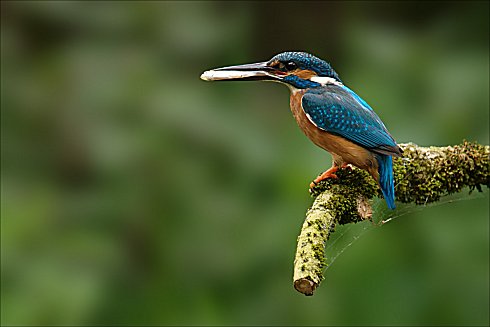
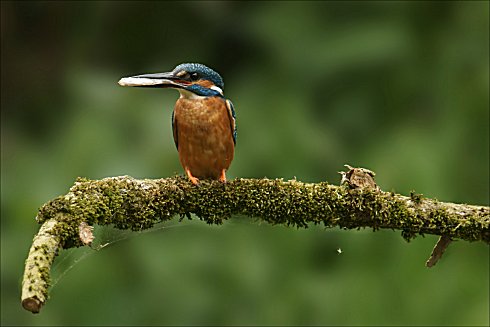
John Keats
(1795-1821)
The Human Seasons
Four Seasons fill the measure of the year;
There are four seasons in the mind of man:
He has his lusty Spring, when fancy clear
Takes in all beauty with an easy span:
He has his Summer, when luxuriously
Spring’s honied cud of youthful thought he loves
To ruminate, and by such dreaming high
Is nearest unto heaven: quiet coves
His soul has in its Autumn, when his wings
He furleth close; contented so to look
On mists in idleness–to let fair things
Pass by unheeded as a threshold brook.
He has his Winter too of pale misfeature,
Or else he would forego his mortal nature.
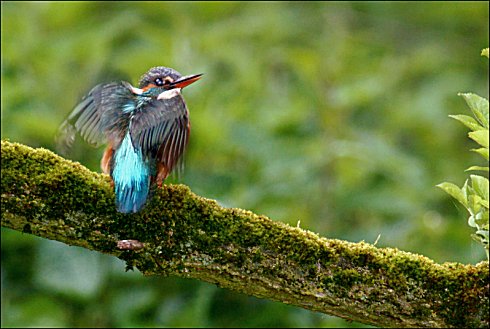

Photos: © Hans Hermans 2010
Natuurdagboek December 2010
Poem: John Keats
fleursdumal.nl magazine
More in: Hans Hermans Photos, John Keats, Keats, John, MUSEUM OF NATURAL HISTORY - department of ravens & crows, birds of prey, riding a zebra, spring, summer, autumn, winter
.jpg)
William Shakespeare
(1564-1616)
THE SONNETS
58
That god forbid, that made me first your slave,
I should in thought control your times of pleasure,
Or at your hand th’ account of hours to crave,
Being your vassal bound to stay your leisure.
O let me suffer (being at your beck)
Th’ imprisoned absence of your liberty,
And patience tame to sufferance bide each check,
Without accusing you of injury.
Be where you list, your charter is so strong,
That you your self may privilage your time
To what you will, to you it doth belong,
Your self to pardon of self-doing crime.
I am to wait, though waiting so be hell,
Not blame your pleasure be it ill or well.
![]()
kempis.nl poetry magazine
More in: -Shakespeare Sonnets

Aloysius Bertrand
(1807-1841)
La Tour de Nesle
– " Valet de trèfle ! " – " Dame de pique ! de gagne ! " –
Et le soudard qui perdait envoya d’un coup de poing sur
la table son enjeu au plancher.
Mais alors messire Hugues, le prévôt, cracha dans le bra-
sier de fer avec la grimace d’un cagou qui a avalé une
araignée en mangeant sa soupe.
– " Pouah ! les chaircuitiers, échaudent-ils leurs cochons
à minuit ? Ventre-dieu ! c’est un bateau de feurre qui
brûle en Seine ! "
L’incendie, qui n’était d’abord qu’un innocent follet
égaré dans les brouillards de la rivière, fut bientôt
un diable à quatre tirant le canon et force arquebusades
au fil de l’eau.
Une foule innombrable de turlupins, de béquillards, de
gueux de nuit, accourus sur la grève, dansaient des gigues
devant la spirale de flamme et de fumée.
Et rougeoyaient face à face la tour de Nesle, d’où le
guet sortit, l’escopette sur l’épaule, et la tour du
Louvre d’où, par une fenêtre, le roi et la reine voyaient
tout sans être vus.
.jpg) .
.
Aloysius Bertrand poetry
kempis.nl poetry magazine
More in: Archive A-B, Bertrand, Aloysius
.jpg)
Emily Dickinson
(1830-1886)
In Vain
I cannot live with you,
It would be life,
And life is over there
Behind the shelf
The sexton keeps the key to,
Putting up
Our life, his porcelain,
Like a cup
Discarded of the housewife,
Quaint or broken;
A newer Sevres pleases,
Old ones crack.
I could not die with you,
For one must wait
To shut the other’s gaze down, —
You could not.
And I, could I stand by
And see you freeze,
Without my right of frost,
Death’s privilege?
Nor could I rise with you,
Because your face
Would put out Jesus’,
That new grace
Glow plain and foreign
On my homesick eye,
Except that you, than he
Shone closer by.
They’d judge us — how?
For you served Heaven, you know,
Or sought to;
I could not,
Because you saturated sight,
And I had no more eyes
For sordid excellence
As Paradise.
And were you lost, I would be,
Though my name
Rang loudest
On the heavenly fame.
And were you saved,
And I condemned to be
Where you were not,
That self were hell to me.
So we must keep apart,
You there, I here,
With just the door ajar
That oceans are,
And prayer,
And that pale sustenance,
Despair!
.jpg)
Emily Dickinson poetry
k e m p i s . n l p o e t r y m a g a z i n e
More in: Dickinson, Emily
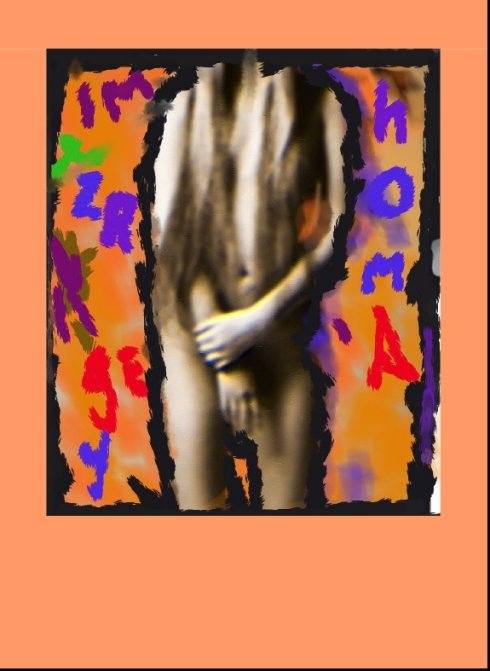 kempis.nl poety
kempis.nl poety
A case of identity:
George
jef van kempen 2010
fleursdumal.nl magazine
► lees meer website museum of lost concepts
More in: Jef van Kempen, Jef van Kempen Photos & Drawings
Thank you for reading Fleurs du Mal - magazine for art & literature